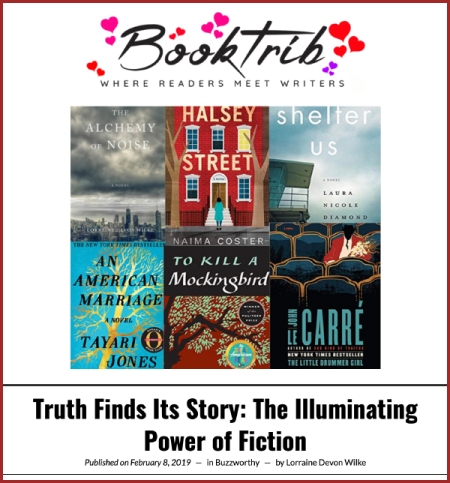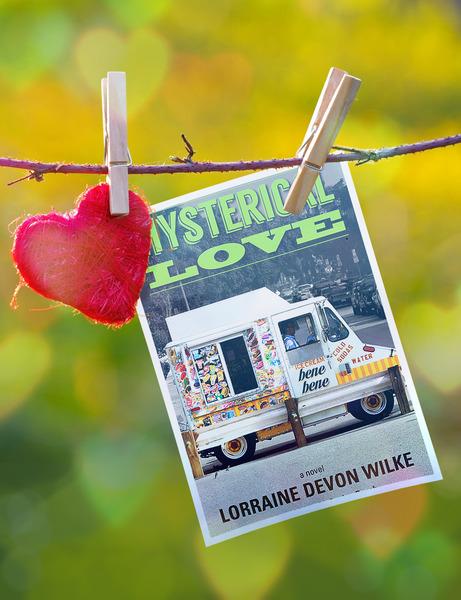
Ever since James Frey was publicly flayed for his bestselling “semi-fictional novel,” A Million Little Pieces, the issue of just how little fiction is allowed in memoir and how much fact peppers the typical novel has inspired endless conversations in the literary world. Frey was excoriated like no author before or since (on-air shaming by Oprah has to be the apex!) after originally releasing his book as a “memoir,” an admitted miscalculation by his publisher, Nan Talese, who readjusted after many “facts” of the book were debunked.
More recently, author Dani Shapiro took to Salon in a piece titled, “Open letter from Dani Shapiro: ‘Dear Disillusioned Reader Who Contacted Me on Facebook’” to wrist-slap an apparently irate reader who took umbrage with the degree of the “truth” in her book, Slow Motion: A True Story. In a somewhat condescending, if educational, tone, Shapiro makes her case for the differences between memoir and autobiography, in defense, one presumes, of some fudging on the veracity of her “true story.” (Of course, calling a book “a true story” does set one up for the challenge!)
Wherever you fall on this particular debate (I have to say, I – like Shapiro’s “disillusioned reader” – always presumed memoir and autobiography were interchangeable!), there’s a bit of a parlor game to sorting out just what is or isn’t true in what any writer presents to their public, even when it comes to fiction, where rules dictate that truth is not actually required.
But what if readers presume a fictional tale is true? That characters are based on real people, that plot lines follow the trajectory of a real life; that resolutions, transformations, and denouements mirror the realities of the writer? That makes for fascinating, if occasionally misguided, discussion, one I found myself party to when readers of my debut novel, After the Sucker Punch, started writing with queries like, “Is her best friend ‘Kate’ based on (fill in the blank)?” or “How come you never told me you had an alcoholic brother?” or “Aren’t you lucky to have an Aunt Joanne?” (answers to which were, respectively, “No,” “I don’t” and “I don’t actually have an aunt who’s a nun”).
I’ve discovered, as a first-time novelist who’s written a story that utilizes some elements of my own life, that readers, even those who don’t know me, are eager to ascribe truth to what I’ve consciously and creatively imagined. And that can get tricky at times, particularly when you do have brothers and none of them are alcoholics! While a mentor suggested that, “It’s a testament to the depth and detail of your novel that people assume these things are true,” sensitivity dictates that one’s real family or friends are not associatively tarnished by fictional comparisons. So when yet another reader gleefully wrote, “I bet I can guess who all these people are!” it seemed time to set at least a bit of the record straight!
For those who haven’t yet had the chance to read After the Sucker Punch, here’s a short synopsis to set the stage:
They buried her father at noon, at five she found his journals, and in the time it took to read one-and-a-half pages her world turned upside down… he thought she was a failure.
Every child, no matter what age, wants to know their father loves them, and Tessa Curzio – thirty-six, emerging writer, ex-rocker, lapsed Catholic, defected Scientologist, and fourth in a family of eight complicated people – is no exception. But just when she thought her twitchy life was finally coming together – solid relationship, creative job; a view of the ocean – the one-two punch of her father’s death and posthumous indictment proves an existential knockout.
She tries to “just let it go,” as her sister suggests, but life viewed through the filter of his damning words is suddenly skewed, shaking the foundation of everything from her solid relationship and winning job to the truth of her family, even her sense of self. From there, friendships strain, bad behavior ensues, new men entreat, and family drama spikes, all leading to her little-known aunt, a nun and counselor, who lovingly strong-arms Tessa onto a journey of discovery and reinvention. It’s a trip that’s not always pretty – or particularly wise – but somewhere in all the twists and turns unexpected truths are found.
So, with those narrative bones, let me clarify certain “facts” of this fiction: My real father did write journals and, many years after his death, one was brought to my attention that was particularly focused on me in a somewhat, shall we say, critical way. I had my understandable reaction, but since I’d had a fairly distant relationship with my father throughout my adult life, his retrospective critique, while hurtful, was not, for me, particularly life shattering. It was only when I brought it up in a women’s group I was in at the time that I realized just how provocatively the incident translated to others:
The women in the group were collectively horrified; the variety and intensity of their responses was fascinating, most exclaiming that such an indictment from their father, particularly posthumously, would have left them devastated. My curiosity piqued, I then took the prompt – “how would you feel if you found your father’s journal and he said you were a failure?” – to a number of others, both men and women, and accrued a panoply of replies on all sides of the spectrum, most of which made their way into the lives of the various characters in the book.
That was the inciting incident. What, from there, was true? Really, consciously, thoughtfully, actively… none of it. I didn’t want to memorialize my life, my family; my friends. I didn’t want the obligation of truth and sensitivity; I wanted to fully create a protagonist, a family, friends, lovers; a series of events, plot, and a conclusion that evolved organically from the journey taken by these characters I’d created, truth be damned. And that’s what I did.
Yes, for a person who’s led a fairly interesting and unconventional life, it made artistic sense to imbue my protagonist with some of my characteristics, as well as challenge her with some of the events with which I was challenged throughout my life. But – and it’s a big but – giving “Tessa” and other characters some of the elements of my life and the lives of people within my circle did not make the imagined characters and their plots any less imagined. Any resemblance to truth was, in fact, wildly fictionalized.
A friend, however, challenged me on this assertion. She had graciously sent out an email promoting my book to her circle of friends and, in it, had made the statement, “Lorraine says this is fiction, but it’s really more of a memoir,” something with which I took immediate exception for all the aforementioned reasons. But she persisted, countering, “Well, you did have a father who wrote critical journals, you were a Catholic, you did sing rock & roll, and you were in Scientology, so… come on!” But here’s what I told her:
Imagine a writing exercise in which you give ten writers the following prompt: “Write a story about a young inventor –with Buddhist parents, a sister with a debilitating stutter, and friends who regularly vandalize the small town in which they live – who leaves on a journey to transcend his myopic existence.” Despite the very specific points assigned, you would get ten wildly divergent narratives from your ten different writers. It’s simply the nature of writing; characteristics and events only serve the plot, they do not necessarily define or design it.
And the only way to tell the story I wanted to tell was to create fictional characters with fictional plot lines. And I thoroughly enjoyed doing exactly that!
So to summarize: the protagonist of After the Sucker Punch is not me (in fact, my husband, after reading the book, remarked, “I can’t believe how different she is than you!). Nor are the parents, the siblings, the friends, boyfriends, employers, aunts, neighbors, or small animals the ones in my life. They are, however, very rich and hopefully endearing, maddening, compelling, and intriguing characters who will engage your interest as you make your way through their story and the very human and complex issues within.
And that’s the truth!

Visit www.lorrainedevonwilke.com for details and links to LDW’s books, music, photography, and articles.










